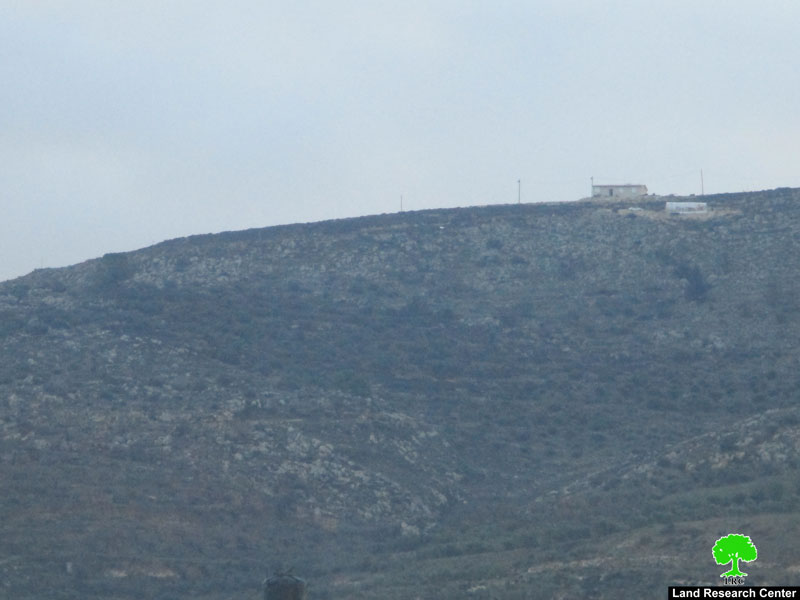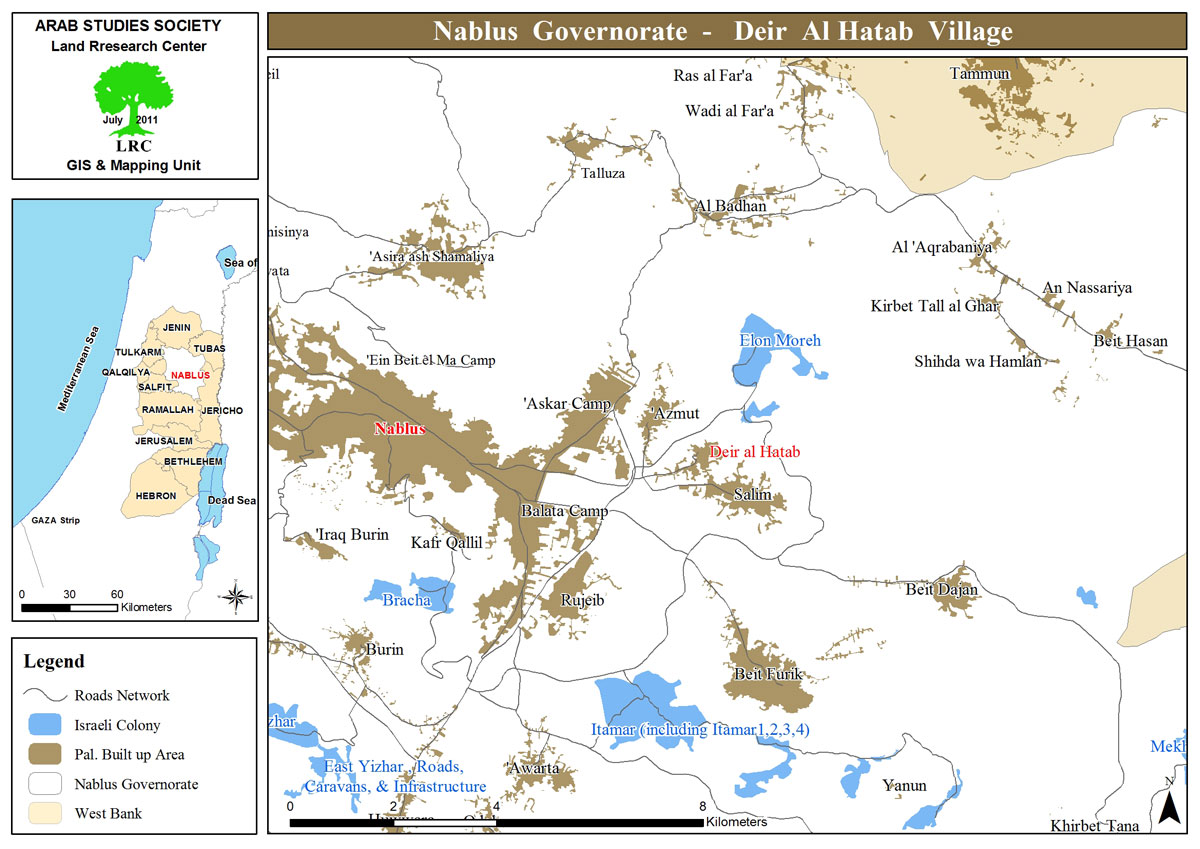2018-01-01
Establishing new colonial outpost East Nablus governorate
Violation: establishing new colonial outpost
Location: Deir Al-Hatab village - Nablus city
Date: January 01, 2018
Perpetrators: Alon Moreh colonists
Victims: Palestinian owners of lands from the village
Details:
A group of fanatic colonists from Alon Moreh set up a caravan and some agricultural rooms in the area of Ras Al-Ein, north Deir Al-Hatab village. The targeted location is founded within the natural block number 9; more particularly the parcel number 26.
It should be noted that the newly targeted lands are only 2km to the east of Alon Moreh colony, which is founded on confiscated lands from the area.
The chairman of Deir Al-Hatab village council, Abdelkarim Hussein, told Land Research Center that establishing a new outpost is the first step to take over 240 dunums from the area of Ras Al-Ein.
Hussein showed concerns that the new outpost will be a step to ban more Palestinians from accessing the target area. In numbers, 38 families will be forbidden from using and entering their lands, which are considered their source of income.
It should be noted that colonists method in seizing lands is illegal. They just took advantage of farmers not being able to access their lands in order to put hands on them.
Nowadays, vast areas of Palestinian lands are being targeted by colonists, who seek to put hand on as vast area of lands as possible to implement their expansionist plans and colonial projects.

Deir al Hatab – an Overview:
Deir al Hatab is located 5.5 km to the east of Nablus city; it is total area is 10875 dunums including 318 dunums of built-up area.
The village's population has reached 2213 people (according to PBS statistics of 2007).
The village has lost 389 dunums of its total area to Israeli colonial activities.
It is surrounded by a number of historical sites and ruins.

- UN Security Council resolutions in regard to Israeli colonies:
UN Security Council resolution 446, article 3 " Calls once more upon Israel, as the occupying Power, to abide scrupulously by the 1949 Fourth Geneva Convention, to rescind its previous measures and to desist from taking any action which would result in changing the legal status and geographical nature and materially affecting the demographic composition of the Arab territories occupied since 1967, including Jerusalem, and, in particular, not to transfer parts of its own civilian population into the occupied Arab territories;"
- Un Security Council resolution 452, article 3"Calls upon the Government and people of Israel to cease, on an urgent basis, the establishment, construction and planning of settlements in the Arab territories occupied since 1967, including Jerusalem;"
- Un Security Council resolution 465, Strongly deplores the continuation and persistence of Israel in pursuing those policies and practices and calls upon the Government and people of Israel to rescind those measures, to dismantle the existing settlements and in particular to cease, on an urgent basis, the establishment, construction and planning of settlements in the Arab territories occupied since 1967, including Jerusalem;
Calls upon all States not to provide Israel with any assistance to be used specifically in connexion with settlements in the occupied territories; - Un Security Council resolution 242, Affirms that the fulfilment of Charter principles requires the establishment of a just and lasting peace in the Middle East which should include the application of both the following principles:
(i) Withdrawal of Israel armed forces from territories occupied in the recent conflict;
(ii) Termination of all claims or states of belligerency and respect for and acknowledgment of the sovereignty, territorial integrity and political independence of every State in the area and their right to live in peace within secure and recognized boundaries free from threats or acts of force;

The contents of this document is the sole responsibility of LRC and can under no circumstances be regarded as reflecting the position of the European Union
